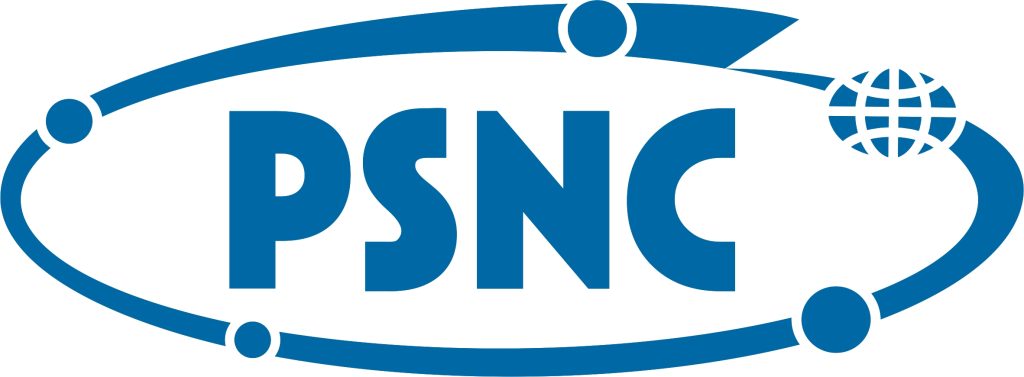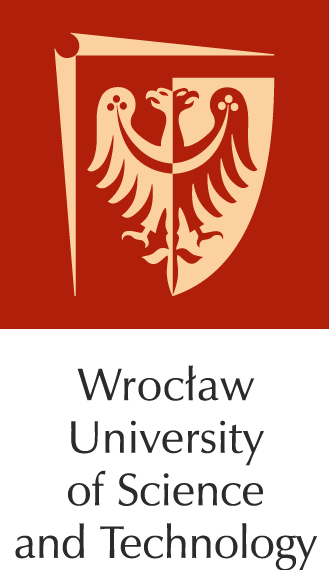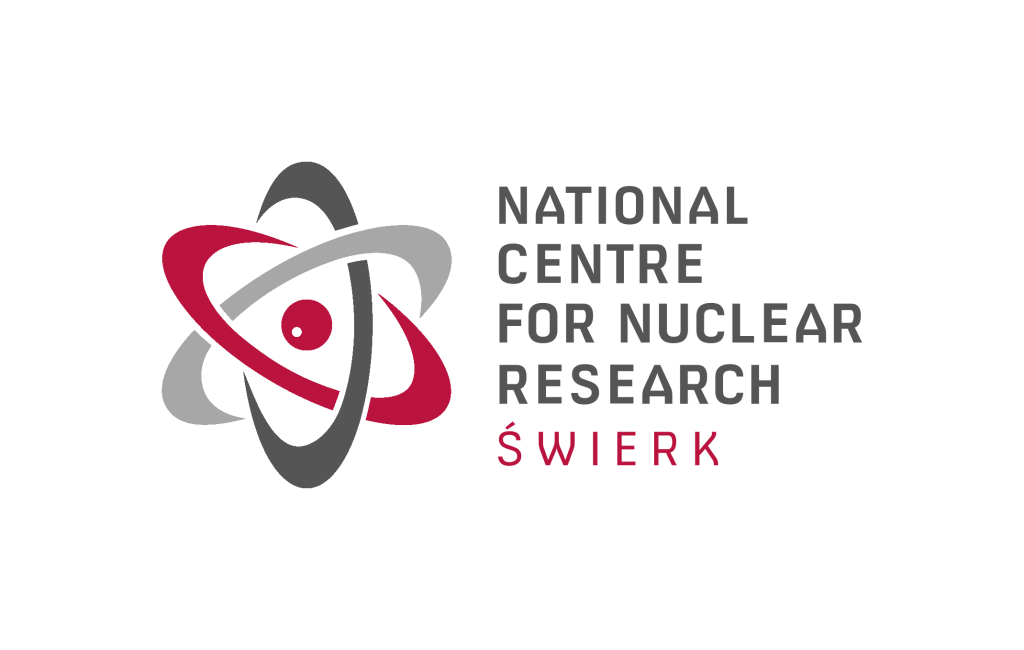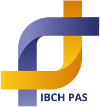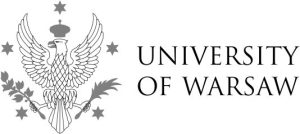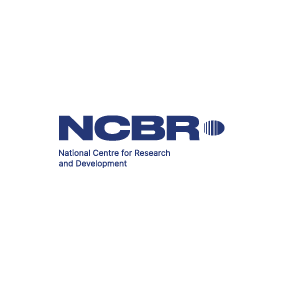NEWS
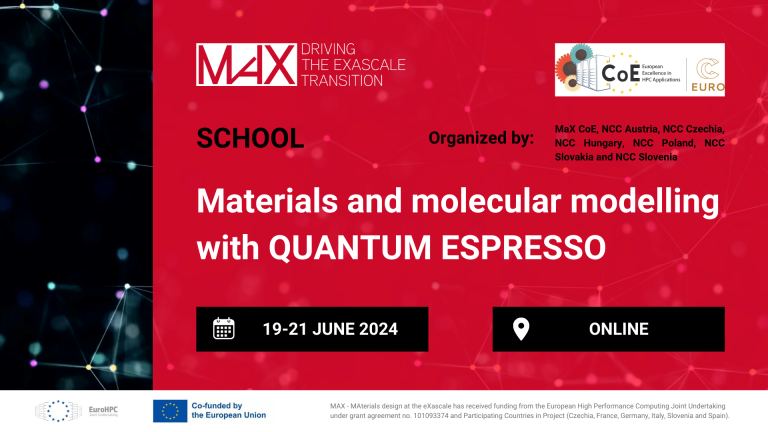
MaX school: materials and molecular modelling with Quantum ESPRESSO
We would like to invite you to the MaX school: materials and molecular modelling with Quantum ESPRESSO. The training will take place online from 19-21 June 2024 and is free of charge.
The course will introduce you to the basic functions of the Quantum ESPRESSO code and help you gain practical skills. It is designed for beginners and intermediate users. In the training course you will gain the basic knowledge and skills necessary to use Quantum ESPRESSO effectively in your research and scientific activities.
An online school organized by MaX, in collaboration with: NCC Czechia, NCC Austria, NCC Slovakia, NCC Slovenia, NCC Poland and NCC Hungary.
Full details and a link home for registration can be found here.
Tsunami and Meteo-Tsunami Modelling Training Course
You are invited to attend the Tsunami and Meteo-Tsunami Modelling training course. This is a two-day online course organised by the ChEESE project.
It deals with the mathematical modelling and numerical simulation of two phenomena: tsunamis (caused by underwater earthquakes) and meteo-tsunamis (caused by sudden changes in air pressure at the surface of bodies of water). A brief theoretical overview on the processes and mechanisms producing this kind of natural events will be first provided. Then, the European flagship code, Tsunami-HySEA, will be used to simulate various tsunami and meteo-tsunami events. Course participants should be familiar with the Python.
The training is free of charge and will take place online, on the ZOOM platform, on 13-14 May 2024, from 15.00-18.00.
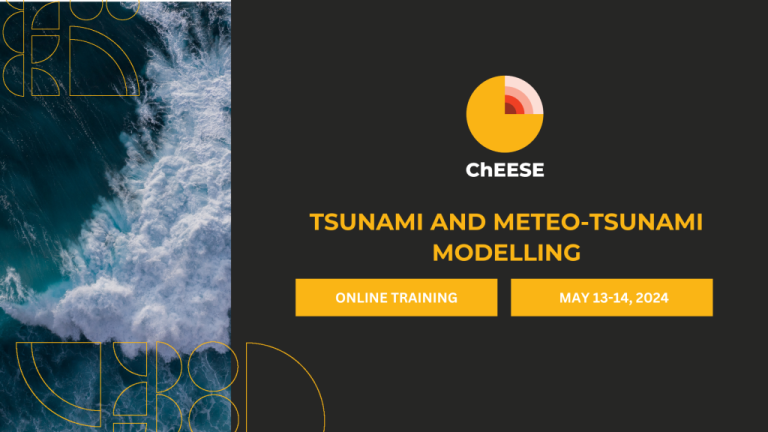
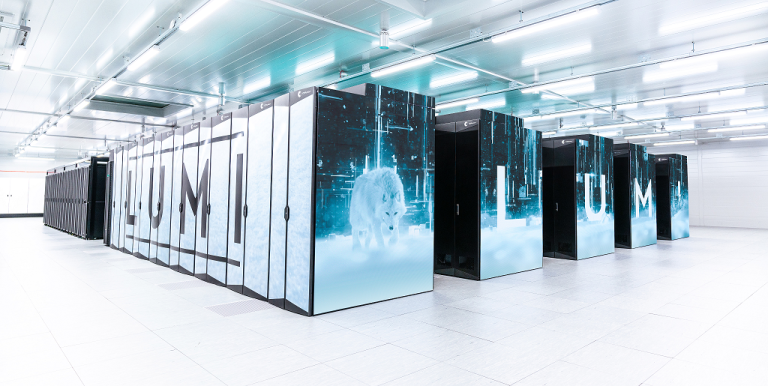

LUMI workshop 2024
On June 3, 2024, from 10:00 a.m. to 4:00 p.m. in Warsaw, we are organizing a workshop “Accelerating your computing with the LUMI European supercomputer”.
LUMI is one of the largest European supercomputers and flagship EuroHPC systems. More information on Polish activities under LUMI can be found here. Polish scientists have access to LUMI via national PLGrid Infrastructure.
The program includes:
● Using machine learning frameworks on LUMI
● Working with large language models using Megatron-DeepSpeed on LUMI.
The event will be held in Warsaw, at the Centrum Szkoleniowe Wspólna, 56 Wspólna st.
Welcome to the second conference on the application of artificial intelligence and quantum computers in medicine and physics
You are cordially invited 2nd International Workshop on Machine Learning and Quantum Computing Applications in Medicine and Physics (WMLQ2024) to Warsaw on 4-7.06.2024.
List of topics:
• machine learning methods in medical applications,
• machine learning methods in high-energy physics and astrophysics,
• quantum machine learning,
• Generative Adversarial Networks and Diffusion models for fast simulations both in medicine and particle physics,
• quantum simulations,
• quantum and quantum-inspired computing algorithms,
• novel methods in medical imaging,
• High-Performance Computing (HPC) in physics and medicine, in particular on heterogeneous platforms such as FPGA and GPU.
Training hands-on sessions will be held during the workshop. Please note that the LUMI hands-on session will take place one day before the start of the conference, on the 3 June.
The WMLQ2024 conference is an opportunity for many interdisciplinary discussions and collaborations. The event will bring together experts from various institutions and research groups in the fields of medical imaging, radiotherapy, physics, and computer science.
We encourage you to submit abstracts (by 6 May) and to register (by 28 May).
All necessary information can be found on the conference website.
The conference is organised by the National Centre for Nuclear Research in cooperation with scientists from the University, of Vienna, Jagiellonian University and the Polish National Competence Centre in HPC.

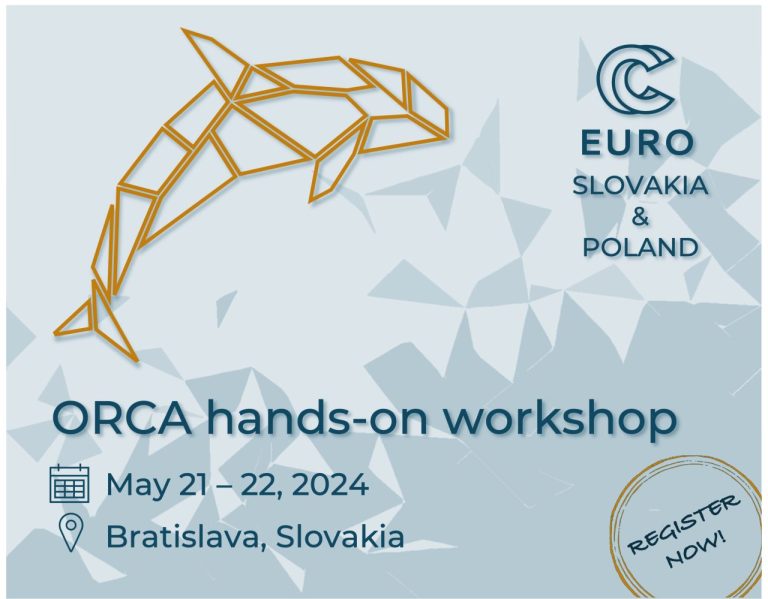
ORCA Hands-on Workshop
We would like to invite you to a two-day workshop for researchers on the ORCA suite of programmes. See you in Bratislava on 21-22 May 2024.
ORCA provides cutting-edge capabilities in the field of computational quantum chemistry in computations of electronic structure and molecular properties, and simulations of various physicochemical phenomena.
Participants will learn the basics of work with ORCA and get a hands-on experience with the most common types of calculations (properties, geometry optimization, spectroscopy, relativistic corrections). Moreover, participants can submit their own use cases or problems that can be addressed and discussed on the second day of the event.
The workshop is organised by National Competence Centres for HPC in Slovakia and Poland. The workshop will be held in F2F format, in English. Staff from academic institutions are welcome to attend.
Poland Open Hackathon
We would like to invite you to the “Poland Open Hackathon” organized on July 9-18, 2024 by the Academic Computer Centre Cyfronet AGH in cooperation with PLGrid Infrastructure, Polish National Competence Centre in HPC, and NVIDIA.
The goal of the Open Hackathon is for computational scientists to port, accelerate, and optimize their scientific applications to modern computer architectures, including CPUs, GPUs, and other computing technologies. Participating teams should leave the event either with their applications accelerated and/or optimized on the latest supercomputing hardware or with a clear roadmap of the next steps needed to leverage these resources.
This hackathon is open to everyone looking to take their projects to the next level; however, priority acceptance will be given to PLGrid-affiliated scientists and their collaborators. We highly encourage users from the industry level and public administration to participate in this event.
More details about the event and the registration form (deadline: May 08, 2024) can be found HERE.
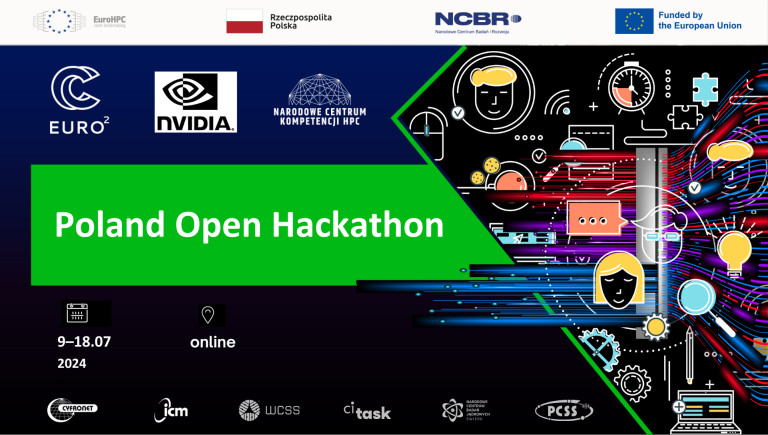
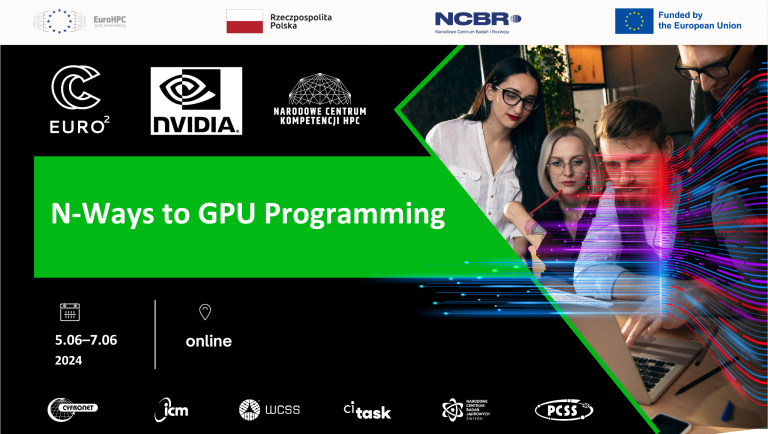
Poland N-Ways to GPU Programming Bootcamp
We would like to invite you to the “N-Ways to GPU Programming” workshop organized on June 5-7, 2024 by the Academic Computer Centre Cyfronet AGH in cooperation with PLGrid Infrastructure, Polish National Competence Centre in HPC, and NVIDIA.
The bootcamp covers the basics of GPU programming and provides an overview of different methods for porting scientific applications to GPUs using NVIDIA® CUDA®, OpenACC, standard languages, OpenMP offloading. Throughout the bootcamp, attendees with learn how to analyze GPU-enabled applications using NVIDIA Nsight™ Systems and participate in hands-on activities to apply these learned skills to real-world problems.
Access to the fastest supercomputer in Europe
Another competition for access to CPU and GPU resources on the LUMI supercomputer, aimed at Polish researchers, has been launched.
The competition is run by ACK Cyfronet AGH. Allocation of LUMI grants will be carried out through the PLGrid Portal. Applications will be accepted in English only.
Maximum metric values of requested resources:
• CPU: 20 000 000 CPUh
• GPU: 1 000 000 GPUh
• Storage: 10 000 000 TBh.
Competition schedule:
1.03–31.03.2024 – Applications acceptance
until 6.05.2024 – Competition results announcements
until 20.05.2024 – Acceptance of the amount of the allocated resources
until 27.05.2024 – Access to the LUMI supercomputer for the chosen projects.




